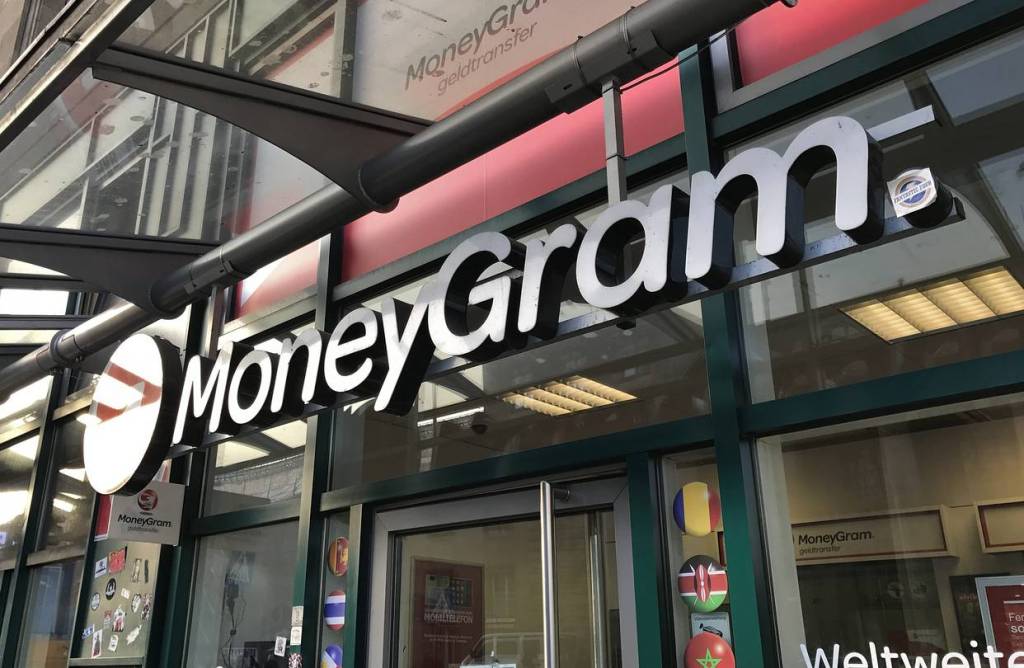MoneyGram Taps Stablecoins To Shield Colombians From Peso Weakness
According to multiple reports, MoneyGram is rolling out a new mobile app in Colombia that lets users receive, hold and move money using USD-backed stablecoins, specifically USDC.
The service is being positioned as a hybrid: a stored-value USD balance that can be funded, received and cashed out through MoneyGram’s existing network. The launch is set to start in Colombia before a wider regional rollout.
Stablecoins Meet Money Transfer Agents
MoneyGram will use the Stellar blockchain for settlement and has partnered with Crossmint for wallet infrastructure.
Users will not be required to handle private keys or pay gas fees directly; the blockchain work is hidden behind the app.
Reports say MoneyGram already counts more than 6,000 retail locations in Colombia, giving users clear places to convert between USDC and Colombian pesos.
Why Some People Might Use It
The Colombian peso has lost over 40% of its value in recent years, and that erosion of buying power is a major reason people are interested in holding value in a USD-pegged unit.
The app promises near-instant receipt of funds in the USDC balance, which could cut down on delays tied to conventional remittances.
Cash-outs to pesos will be possible at MoneyGram agents, and the company is planning card features that would let users spend in USD outside the country.
Reports have disclosed that regulators, KYC and AML rules will shape how the product is rolled out and used.
The legal framework for stablecoins in Colombia is still evolving, and how protections apply to stored USDC balances is not fully spelled out in public documents. That could affect limits on transfers, reporting rules and fees.

Fees for converting between USDC and pesos, agent commissions, and any withdrawal costs were not fully detailed in the initial announcements.
Liquidity and the maintenance of the USDC peg are other factors users should keep in mind. While stablecoins aim to track the US dollar, risks around backing, liquidity and market pressure can affect that peg.
MoneyGram is launching basic functions first and has said that debit card spending in USD and incentive programs for deposits are planned but not available at day one.
The firm describes the app as a way to give people more choice about how they hold and move money, without requiring deep crypto knowledge.
Featured image from PlanetofHotels.com, chart from TradingView
You May Also Like

Husky Inu (HINU) Completes Move To $0.00020688

Trump Drops $400-Billion Dividend Bombshell For Americans — Crypto Market Erupts

Michigan Pushes Crypto Reserve Bill Allowing 10% State Investment in Digital Assets
Highlights: Michigan advances bill to allow cryptocurrency holdings in official state financial reserves. The proposal includes strict crypto security rules like encryption, audits, and multi-party approvals. Michigan joins the growing list of states exploring Bitcoin reserves for budget diversification. Michigan is moving forward with plans to hold cryptocurrency as part of its state funds. House Bill 4087, which would let the state invest in certain cryptocurrencies under set rules, had its second reading on Thursday and was sent to the Committee on Government Operations. If it becomes law, Michigan could start using digital assets more widely in its financial plans. Michigan Moves Toward Crypto Reserve with Strict Security Rules Republican lawmakers Bryan Posthumus and Ron Robinson put forward the bill in February. The bill says crypto must be stored in one of three ways: with a secure storage service, with a qualified custodian such as a bank or trust company, or through exchange-traded products from registered investment firms. The bill allows Michigan to set up a Bitcoin reserve and invest up to 10% of its countercyclical budget and economic stabilization fund in crypto. Hello @bitcoin_laws, HB 4087 is not a Bitcoin Reserve Bill. The word bitcoin is not mentioned anywhere in the bill. This is a cryptocurrency bill. The Michigan Bitcoin Trade Council does not support HB 4087. This is a bill that enables the state of Michigan to invest in ANY… — Michigan Bitcoin Trade Council (@MichBTCtc) September 18, 2025 The proposal sets strict security rules, including government-only access to private keys, full end-to-end encryption, no phone-based access, secure data centers in multiple locations, multi-party approval for transactions, and routine audits. It doesn’t specify which digital assets qualify for strategic reserves, only defining the criterion. The bill states: “Digital currency in which encryption techniques are used to regulate the generation of units of currency and verify the transfer of funds, and that operates independently of a central bank.” Supporters argue that Bitcoin can safeguard Michigan’s funds, reduce risks, and improve returns due to its fixed supply and rising adoption. They believe it strengthens financial security. Critics warn of volatility and unclear regulations, saying Bitcoin’s price swings could threaten stability and harm the state’s long-term financial health. Only Three States Have Passed Laws Several U.S. states are moving toward Bitcoin reserve plans, with Michigan joining more than 20 others drafting similar legislation. This wave highlights the rising attention on digital assets and their role in diversifying state portfolios. New Hampshire, Arizona, and Texas have already passed their own Bitcoin reserve laws. New Hampshire led with HB 302, allowing its treasurer to invest in digital assets with a market cap above $500 billion. Currently, only Bitcoin qualifies. Arizona’s Bill 2749 focuses on holding unclaimed assets and staking rewards in the state treasury rather than buying crypto directly. Texas’s SB 21 calls for a state-funded Strategic Bitcoin Reserve. Similar bills have been rejected in Montana, North Dakota, South Dakota, Wyoming, and Pennsylvania, while 17 other states still have proposals under review. In Michigan, however, the proposal has faced pushback. The Michigan Bitcoin Trade Council opposes the bill, saying it lacks a minimum market size requirement. Without this, the state could end up purchasing cryptocurrencies other than Bitcoin. The group warns this would be risky, as they view other digital assets as more centralized and less secure than Bitcoin. eToro Platform Best Crypto Exchange Over 90 top cryptos to trade Regulated by top-tier entities User-friendly trading app 30+ million users 9.9 Visit eToro eToro is a multi-asset investment platform. The value of your investments may go up or down. Your capital is at risk. Don’t invest unless you’re prepared to lose all the money you invest. This is a high-risk investment, and you should not expect to be protected if something goes wrong.